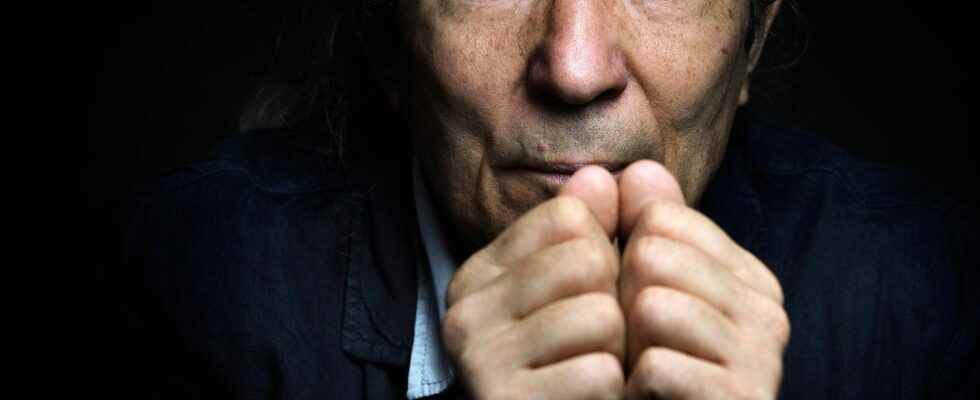Since his tour in Germany where he presented his latest book, the Algerian writer and intellectual Boualem Sansal has answered our questions on French secularism. Where we are ? What to do ? Let’s be honest: the diagnosis of this eternal freedom fighter cannot be said to be optimistic. According to him, the French incapacity (State, secular or religious organizations, civil society) to reinvest secularism in a clear way, “within the strict framework of the law of 1905”, is added to the negligence of a Europe which , faced with Islamism, “seems to know only to procrastinate, to maneuver, to deny the facts, and to lie”. A situation that he considers “terrifying”.
The Express: What does secularism mean to you?
Boualem Sansal: The law on secularism was a tremendous step forward: for a good century, it strengthened the State and the sovereignty of citizens, while protecting freedom of worship within the framework of the laws of the Republic. The religious (Christians and Jews, until then) were convinced of its interest and supported it. Over the past forty years, the rapid and massive settlement in France and Europe of Muslim communities from the former European colonies and increasingly from South Asia has profoundly changed the situation and the said law is gradually being become a subject of contention which, for lack of adequate treatment in time and place, led to radicalism, to communitarianism, then to separatism and will lead tomorrow to civil war and partition if we are to believe the words of several senior politicians and eminent French intellectuals. I agree with this analysis. With the small means that are mine, I have observed this in many places in Europe and seen that in truth this war has already begun, still at low intensity, and that it is looking for ways and ways to gain amplitude and strength. If that happens, it will take on a terrifying form.
You say that the 1905 law has become “a subject of contention” which can lead to communitarianism or separatism. What do you mean ?
In my opinion, the law is not really in question, what hurts is the incapacity of each and every one, of the State first, of the secular organizations, of the Muslim organizations of France (for the most part subservient to foreign countries or foreign Islamist parties), and perfectly integrated Muslim civil society, to find arrangements within the strict framework of the said law. This national incapacity, together with that of Europe, which seems to know only how to dither, waver, deny the facts and lie, dangerously increases the risks of seeing this disastrous scenario come true. It seems that desperate and overwhelmed old Europe, sensing its approaching end, is itself writing the history of its end. There is an air of deja vu.
“It is necessary first and above all and perhaps only that the State be clear in its philosophy and in its governance of secularism”
How is secularism seen from Muslim theocracies?
“Al laïqiyya”, that is to say “secularism” in the West, in France in particular, is seen by Islamic countries as violence against Muslims in the West, an insult to Muslim countries and blasphemy against Allah. They will not cease to denounce it and to obtain its repeal or its rewriting according to the best Islamic views.
For several years now, secularism has been chronically criticism from multicultural countries. The major American newspapers, in particular, often accuse him of being the false nose of racism. What do you think ?
French secularism is indeed criticized everywhere. Those who do are not always justified in doing so. France is certainly the only country in the world to have adopted such a law; and perhaps it could have done without, since its content is already in the Constitution and the laws of the Republic. That said, almost all countries are subject to similar criticism: the United States can be criticized for this crazy provision of its Constitution which enshrines the supposedly sacred right of citizens to possess weapons, including weapons of war. We know what problems it could have created for America and the Americans, yet it is maintained. We can criticize Morocco, whose Constitution recognizes its king as Commander of the Faithful – believers all over the world, of course –, and that of Arabia, which gave its monarch the title of Guardian of the two places. saints of Islam, which greatly upsets other Muslim countries, which all believe they have the right to the title of commander of the believers and guardians of the holy places…
Is secularism an asset?
No, in the sense that, like a lightning rod, it attracts all the thunderbolts upon it. Should we therefore abandon it, revise it? No. First and foremost, and perhaps only, the state needs to be clear in its philosophy and in its governance of secularism. Lately, on the contrary, he has been the first to give it a knife-edge by financing the construction of mosques, by financing religious associations disguised as cultural associations, and a thousand other small gifts to Islamist movements to buy a little respite and of social peace. At the stage where things are, the choice is clear: to act to break the trap that the State has allowed to settle and close in on the country, or to hand over its mandate to the people. I believe that as of November 13, 2015, he must be held directly responsible for all the attacks on national security that have occurred as a result of his disastrous management of secularism. The former interior minister Gérard Collomb had paved the way: when you don’t know how to manage, you resign. But even when some try, this is sometimes the case with Gérald Darmanin, we see shields rising everywhere to prevent them from doing so. At the very top of the state.
